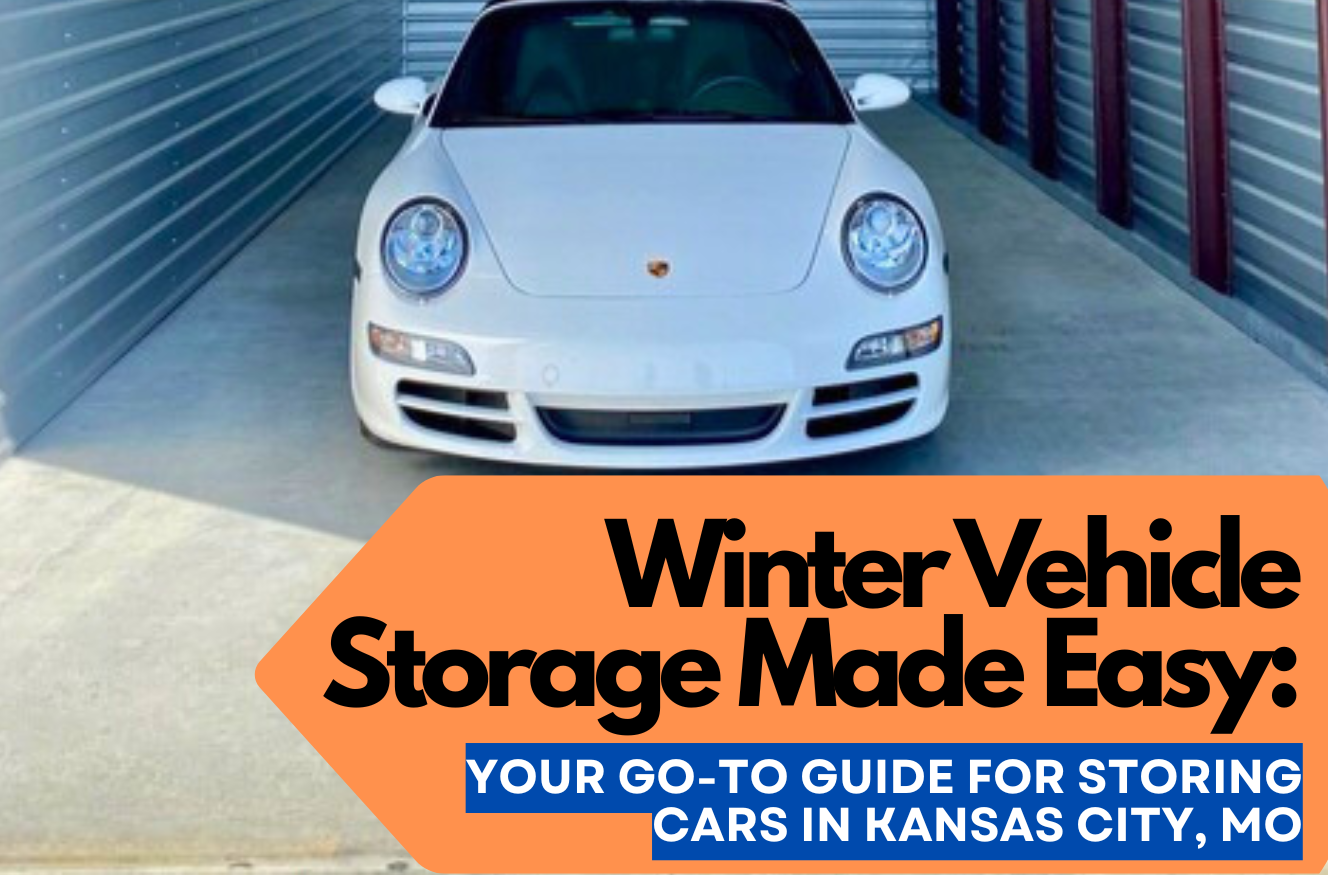
As winter turns the Northland and Kansas City area into colder weather and harsher conditions, many vehicle owners look for safe, secure storage options. If you’re planning to store your car, truck, RV or seasonal vehicle for several weeks or months this winter, doing it right can save you time, money and headaches in the spring. Below, we’ll walk you through why professional indoor or covered storage is smart — and how to properly prepare your vehicle for winter storage at Kansas City North Storage.
Why Choose Kansas City North Storage for Winter Vehicle Storage
- Secure facility with gated access, lighting, and 24/7 monitored entry — giving you peace of mind as your vehicle sits through the chilly season.
- Outside parking and indoor self-storage options (ask for vehicle-friendly unit sizes) that protect from snow, ice, salt, and the freeze/thaw cycle.
- Convenient location in the KC Northland only 3 miles from the Kansas City International Airport.
- Seasonal flexibility: you can store for a short winter lay-up period and retrieve when you’re ready — ideal for infrequently used vehicles, project cars, or seasonal rigs.
Pre-Storage Checklist: How to Prepare Your Vehicle
Here are the key steps you’ll want to take before rolling your vehicle into storage for the winter.
1. Wash, dry & protect the exterior
- A clean vehicle is much less likely to suffer from corrosion, rust or paint damage while in storage. We recommend washing the underside and applying wax before storage so you lock in protection.
- After cleaning, cover with a breathable vehicle cover (especially if the storage unit is not fully climate-controlled) to keep dust off and reduce moisture contact.
2. Clean the interior & remove perishables
- Remove food wrappers, trash, any items that may attract rodents or pests. Clean the upholstery and carpets. Pro Tip: We suggest adding desiccant packs inside the vehicle to help control cabin moisture.
3. Fuel & fluids
- Fill the gas tank or at least bring it up to prevent moisture buildup and condensation inside the fuel tank.
- Consider adding a fuel stabilizer if the vehicle will sit for a long duration.
- Change the oil (and filter) if due — older oil may break down and increase risk of engine corrosion while idle.
- Top off other critical fluids: coolant, brake fluid, transmission fluid. This prevents freezing damage, corrosion and seals drying out.
4. Tire care & parking position
Tires can develop flat spots if a vehicle sits too long without moving. To mitigate:
- Inflate tires to the recommended pressure. Pro Tip: the recommended tire pressure is generally listed on the door jamb or door of the vehicle.
- If possible, park on foam boards or blocks to relieve load on tires.
- If you have the ability, roll or move the vehicle slightly every few weeks.
5. Battery & electrical
A battery left uncharged will gradually deteriorate. To maintain:
- Use a solar battery maintainer/trickle charger.
- Alternatively, disconnect the negative terminal to avoid parasitic drain.
- If you can start the vehicle occasionally, do so for ~10–15 minutes to circulate fluids and keep components fresh.
6. Avoid using the parking brake
- Leaving the parking brake engaged for long periods can cause pads to stick to rotors. Instead use wheel chocks and leave the brake off.
7. Rodent and moisture protection
- Block or plug exhaust and air intake openings to deter rodents.
- Use a barrier under vehicle to ensure no fluids drip or freezing occurs on the floors.
Why Enclosed Storage Wins in the Kansas City Winter
In the Kansas City region, winter brings: cold temperatures, ice/snow, road salt, freeze-thaw cycles, and increased moisture. Storing your vehicle outdoors exposes it to these risks:
- Salt and moisture accelerate rust and corrosion (especially on undercarriages, brake lines, and metal body panels).
- Freezing conditions can damage coolant systems or fluids if the vehicle isn’t prepared.
- Tire flat-spotting and seal drying are more likely in uninsulated or outdoor storage.
- Rodents may more readily access inattentive vehicles in standard outdoor lots.
By contrast, choosing a fully enclosed storage unit at Kansas City North Storage offers: fully sheltered environment, reduced exposure to elements, fewer rodents, space to store additional items inside the unit and the added safety of having a door to lock and secure. If you plan on accessing your vehicle often, only need storage for a short period or need a more cost effeciant storage option, our outside uncovered parking spaces might be the best fit for you!
What to Do When You Remove the Vehicle in Spring
Once you’re ready to bring your vehicle out of storage:
- Remove the cover, reconnect the battery (or unhook the maintainer).
- Check tire pressures, fluid levels, and look for any signs of rodent intrusion.
- Take a moderate drive to get engine up to temperature and verify brakes, transmission and cooling system are working.
- Wash away any dust or storage grime.
Winter Storage at Kansas City North Storage — Terms, Unit Sizes & Tips
- Choose unit sizes that accommodate your vehicle: for sedans or small SUV’s a 10′ x 20′ unit may work; for larger trucks and SUVs or RVs a 10′ x 25′ unit may give you more space. Pro Tip: It is important to know your vehicle’s dimensions, including height clearance, prior to leasing a unit.
- Ask about fully enclosed units vs outside parking spaces — enclosed offers the best protection, but uncovered parking might be a lower cost alternative.
- Our storage facility offers dusk to dawn lighting, security cameras, easy drive-in/drive-out access — this makes seasonal retrieval easier.
- Label and purchase any required liability or vehicle insurance check as your regular auto coverage may need to be updated for storage. Be sure to tell your insurance carrier where your vehicle is being stored in case of any loss or damage while in storage.
- If vehicle will be stored multiple months, we recommend leaving a car cover on, and drip-free parking pad or spill mat on the unit floor in case of leaking fluids.
- Our biggest tip is to check on your vehicle at least once a month. If you are unable, we highly recommend allowing a friend or family member access to your unit to check on the vehicle for you.
Ready to store your vehicle with confidence? Contact Kansas City North Storage today to reserve your unit. Whether you’re storing your daily driver for a few months, a classic, an RV or seasonal rig — we’ve got secure, well-maintained units that meet your needs. Don’t wait until the worst of winter weather hits— call now and we’ll help you pick the right unit and walk you through simple prep steps.




